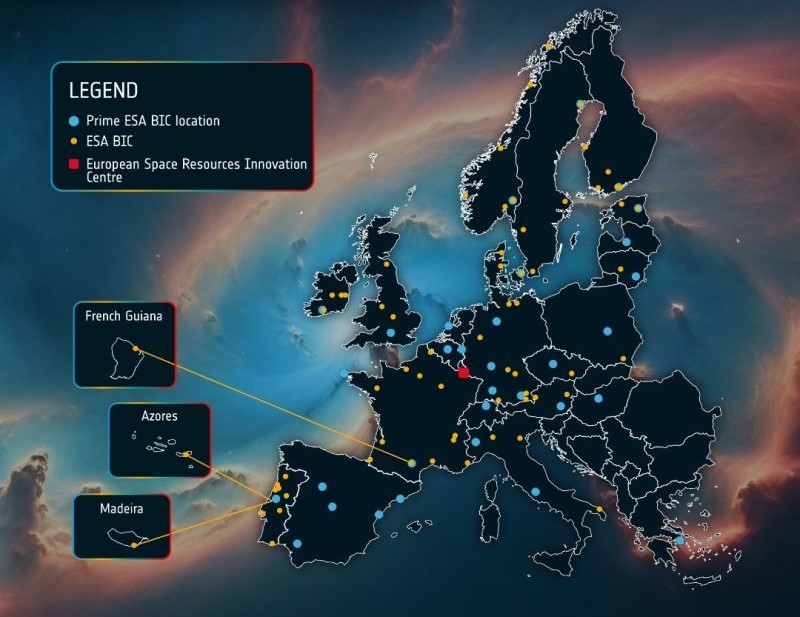
About the program
ESA BIC Madrid Region is the Business Incubation Centre of the European Space Agency (ESA) and the Community of Madrid coordinated by the madri+d Foundation, which provides incentives to enable entrepreneurs (incubatees) to receive commercial and technical assistance in order to set up their business using space technology for general non-space industrial, scientific and commercial uses ("spin-off") or to use non-space technology for products and services for the space sector ("spin-in")1.
“ESA BIC madrid Region started its activity in 2015 and ESA funding has been guaranteed through the Spanish Delegation at the ESA, Spanish Space Agency, AEE”

Why in Madrid?
The Community of Madrid represents 92% of the Spanish space sector, which is highly innovative, productive and exporting. ESA BIC Comunidad de Madrid allows the ESA BIC to support the entrepreneurial ecosystem emerging around this industry.
ESA BIC Comunidad de Madrid integrates university and technology institutions in the region in a showcase of operational excellence that allows entrepreneurs to integrate and collaborate with their environment.
ESA BIC Comunidad de Madrid uses the procedures and know-how acquired by ESA in its European network of incubation centers, providing effective support to companies in their day-to-day work and to overcome their challenges.
The companies start their activity after an exhaustive selection process that guarantees the quality of the projects and the commitment of the teams. The ESA BIC Network has supported more than 500 companies in Europe with very high survival rates, close to 87%.
1These “spin-in” products and services shall address innovative solutions, possibly in conjunction with new business models, for the future space industry, aka “Space 4.0”. Beyond applications of space systems, which are already eligible to ESA BICs, “spin-in” encompasses solutions for optimising or developing processes, components, subsystems (up to an entirely new space system), all along the space value chain of payloads, satellites, launchers and ground stations, from concept definition, construction, manufacturing, assembly, integration, and testing all the way to launch, operations, and evaluation, using for instance COTS from non-space sectors, contemporary automation, big data, data exchange and manufacturing technologies, such as 3D-printing.

